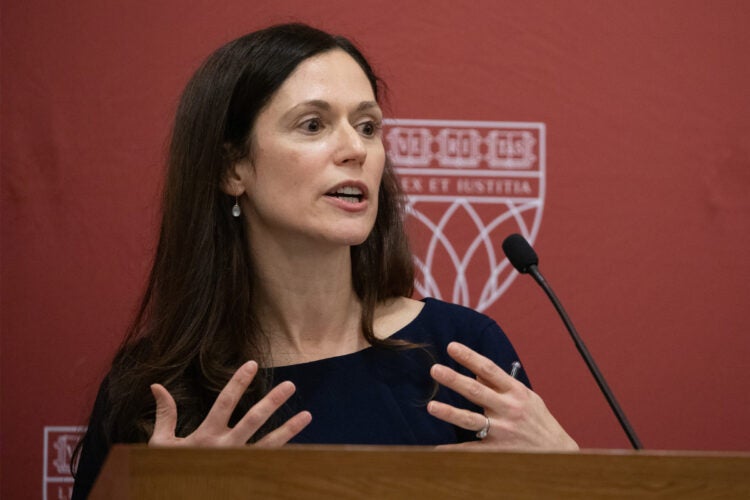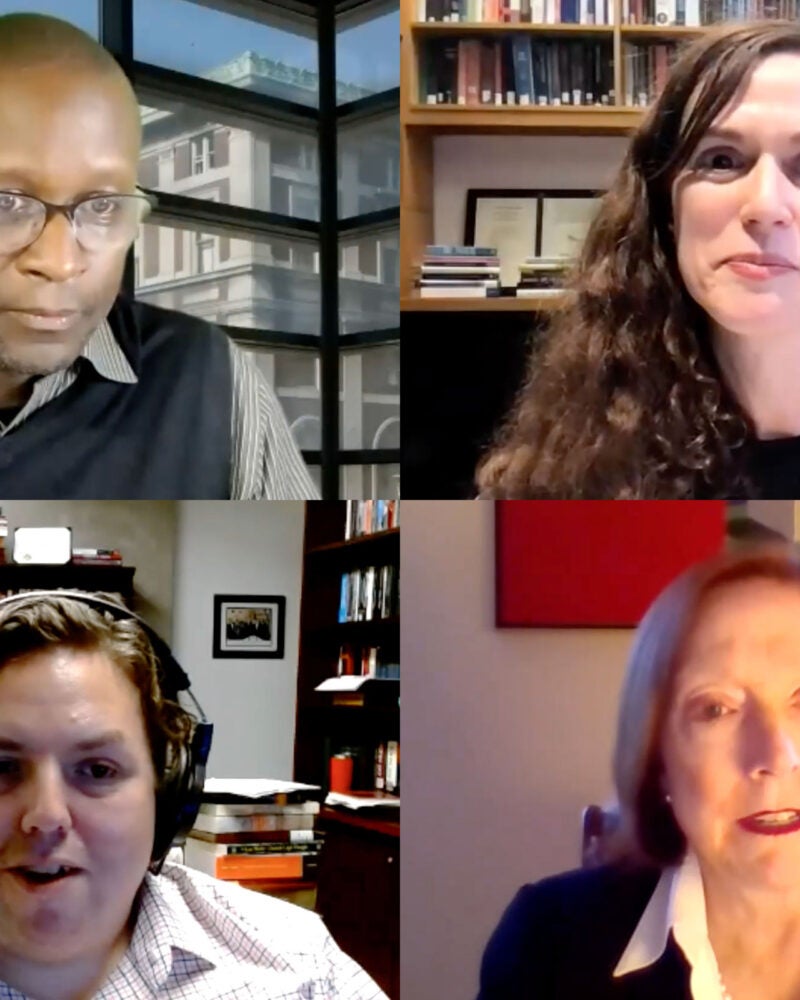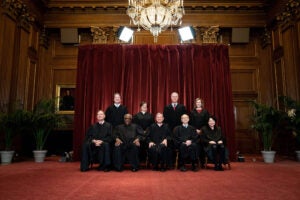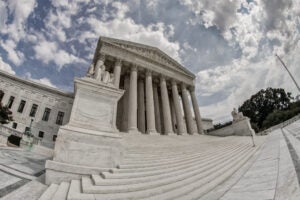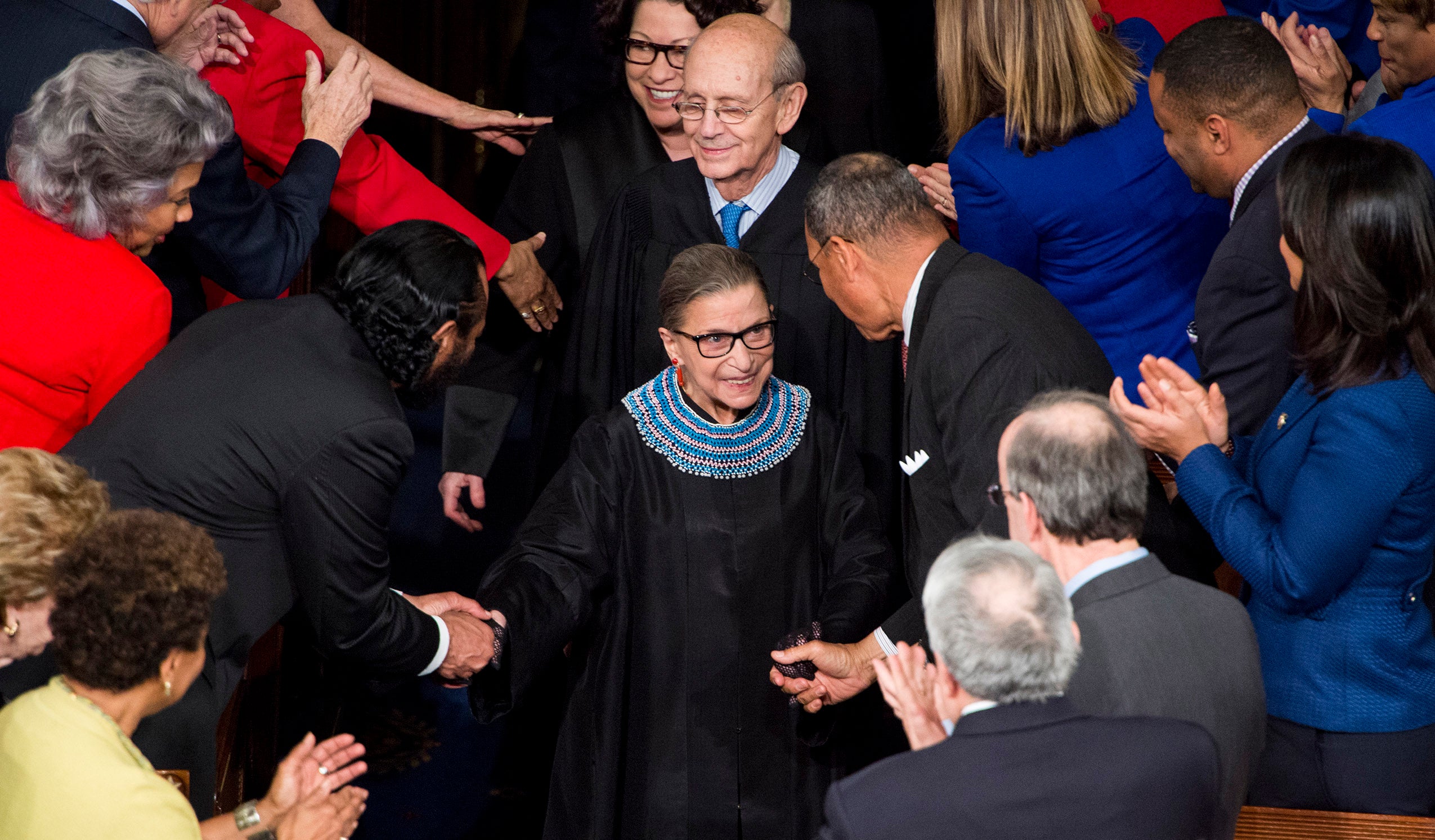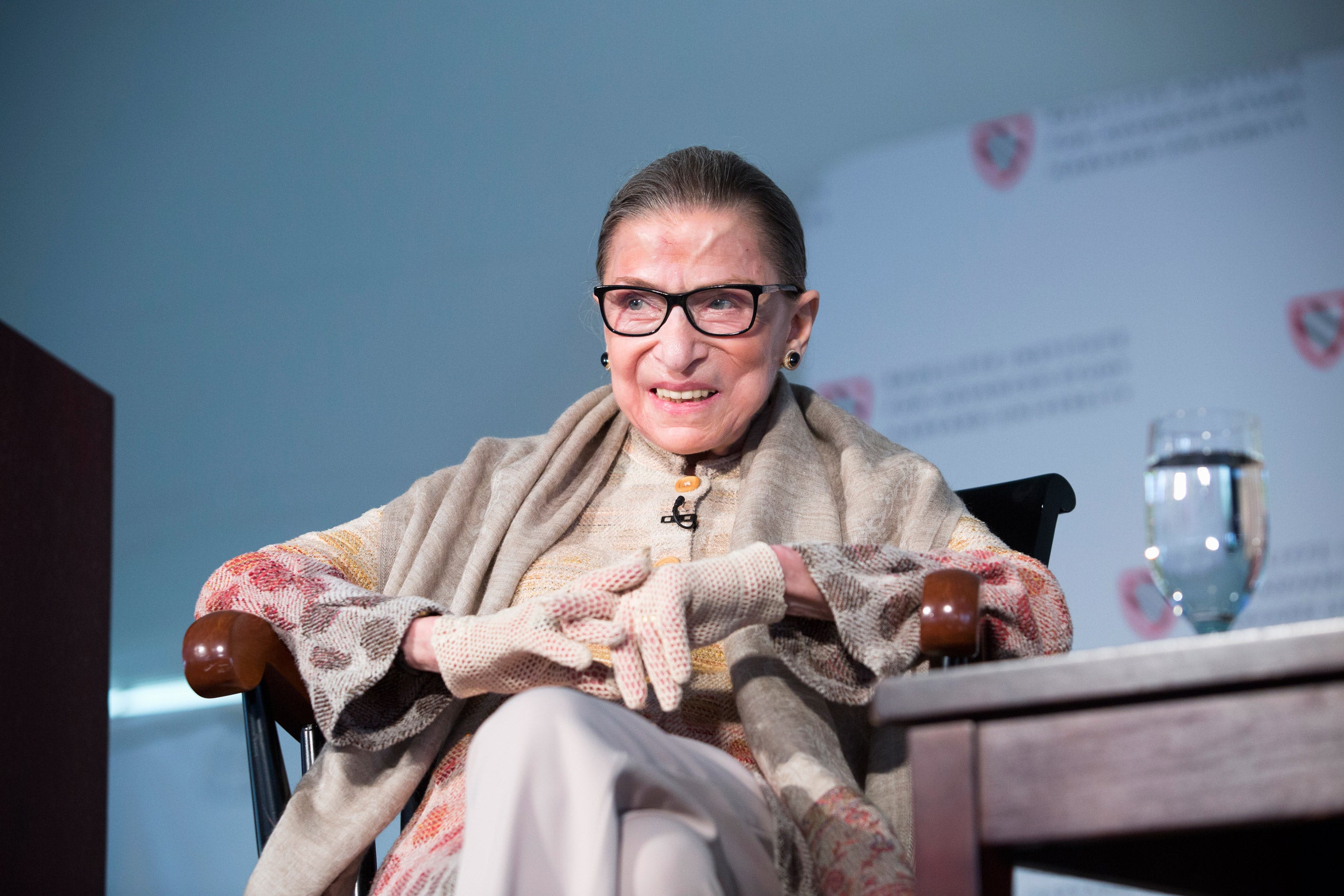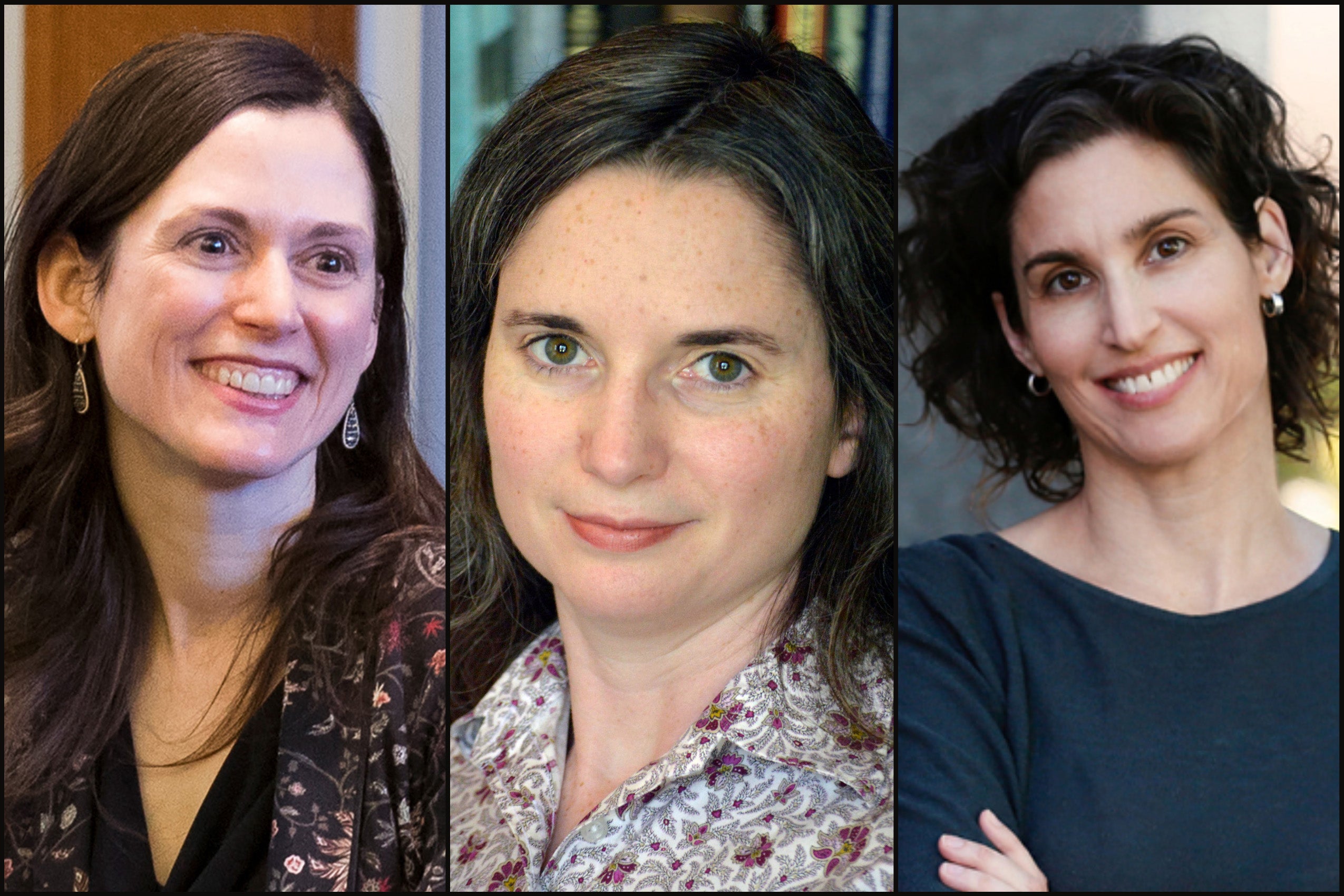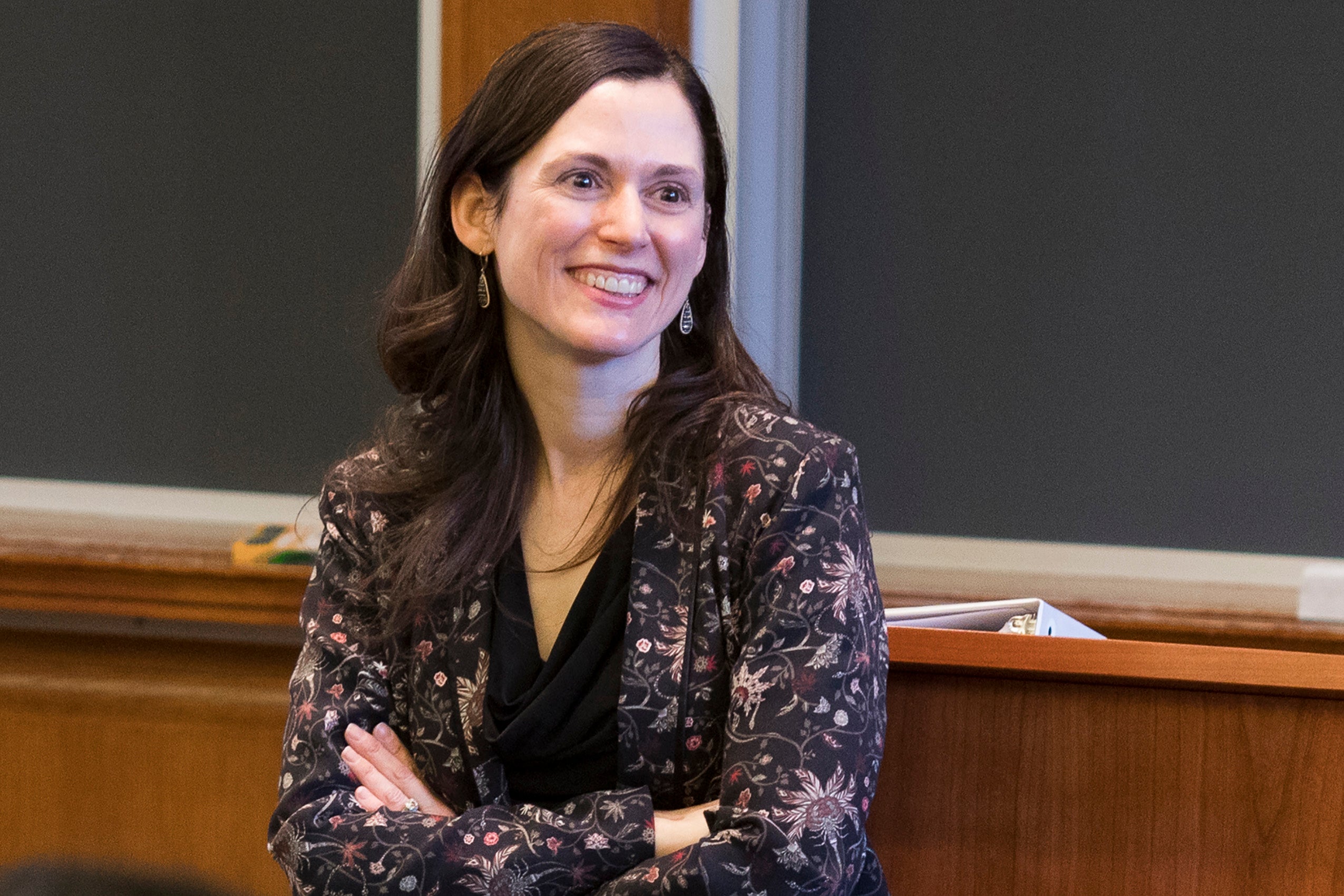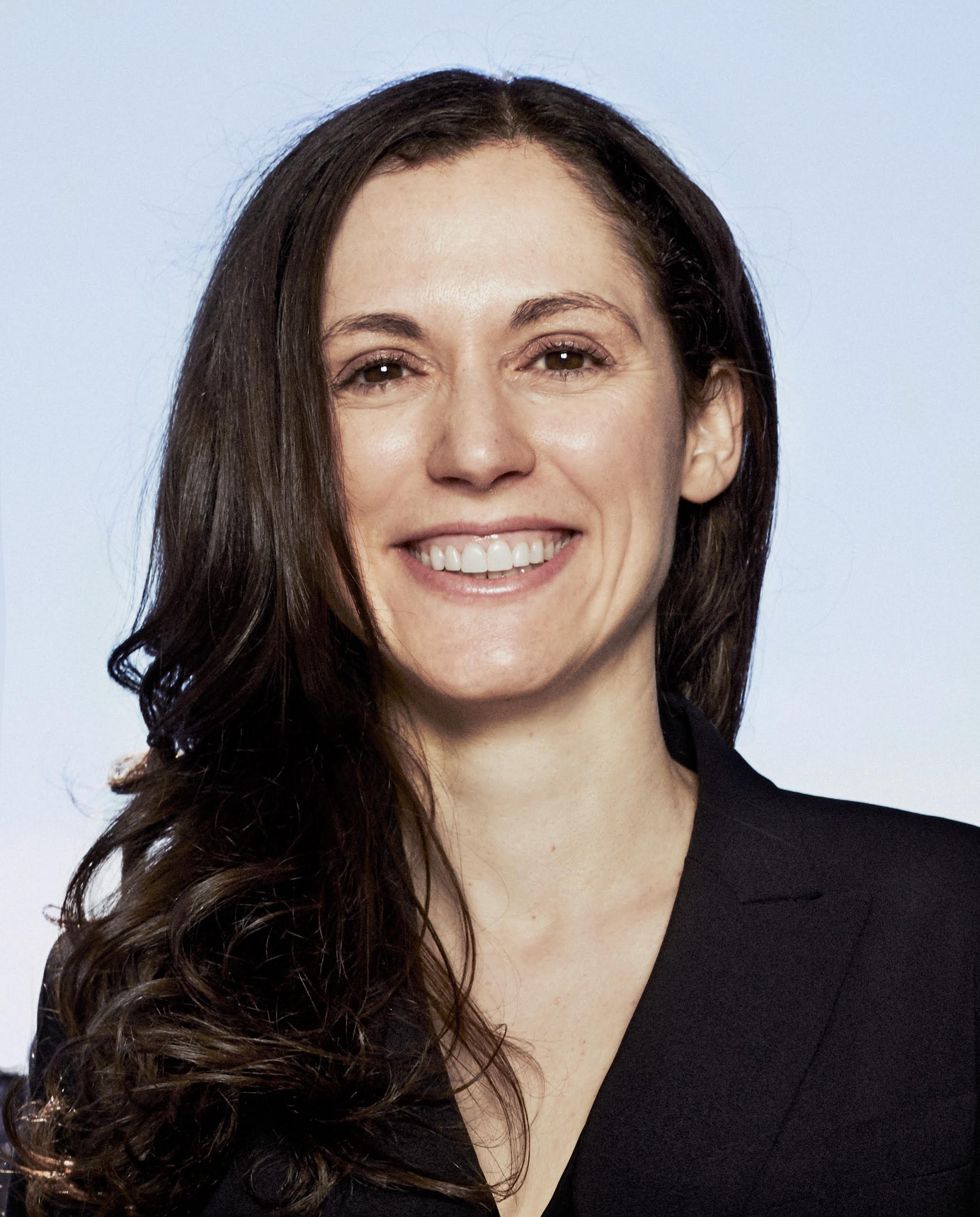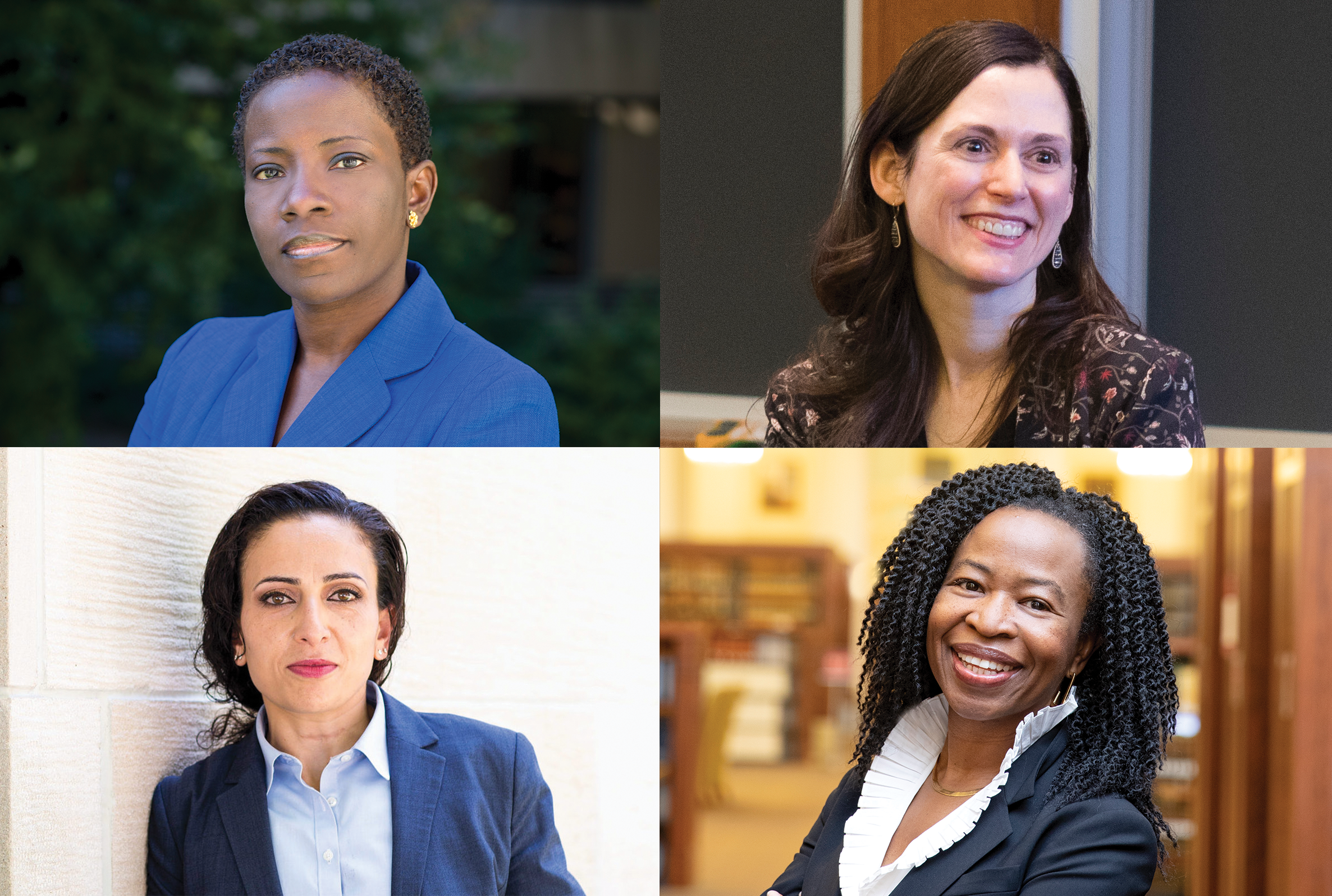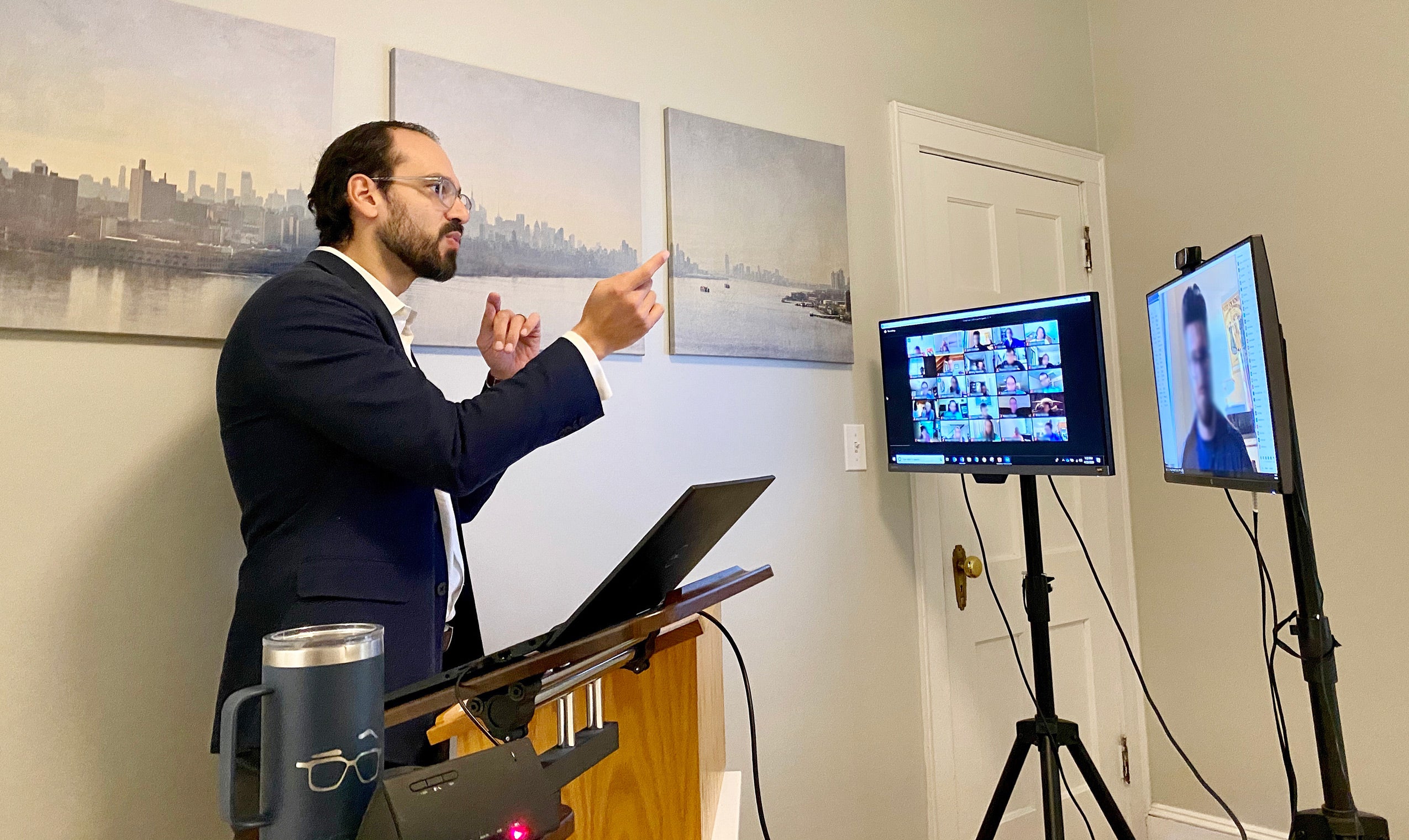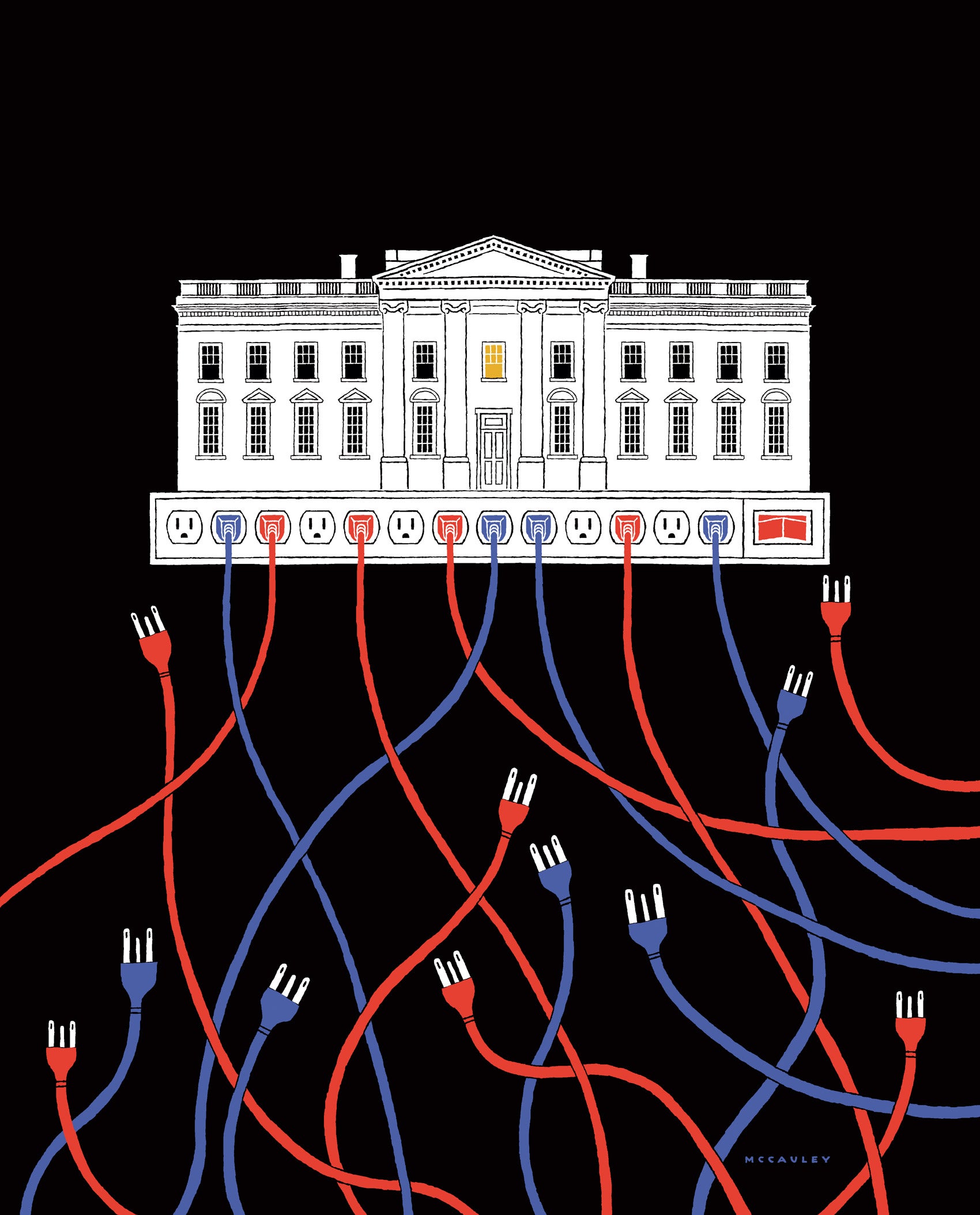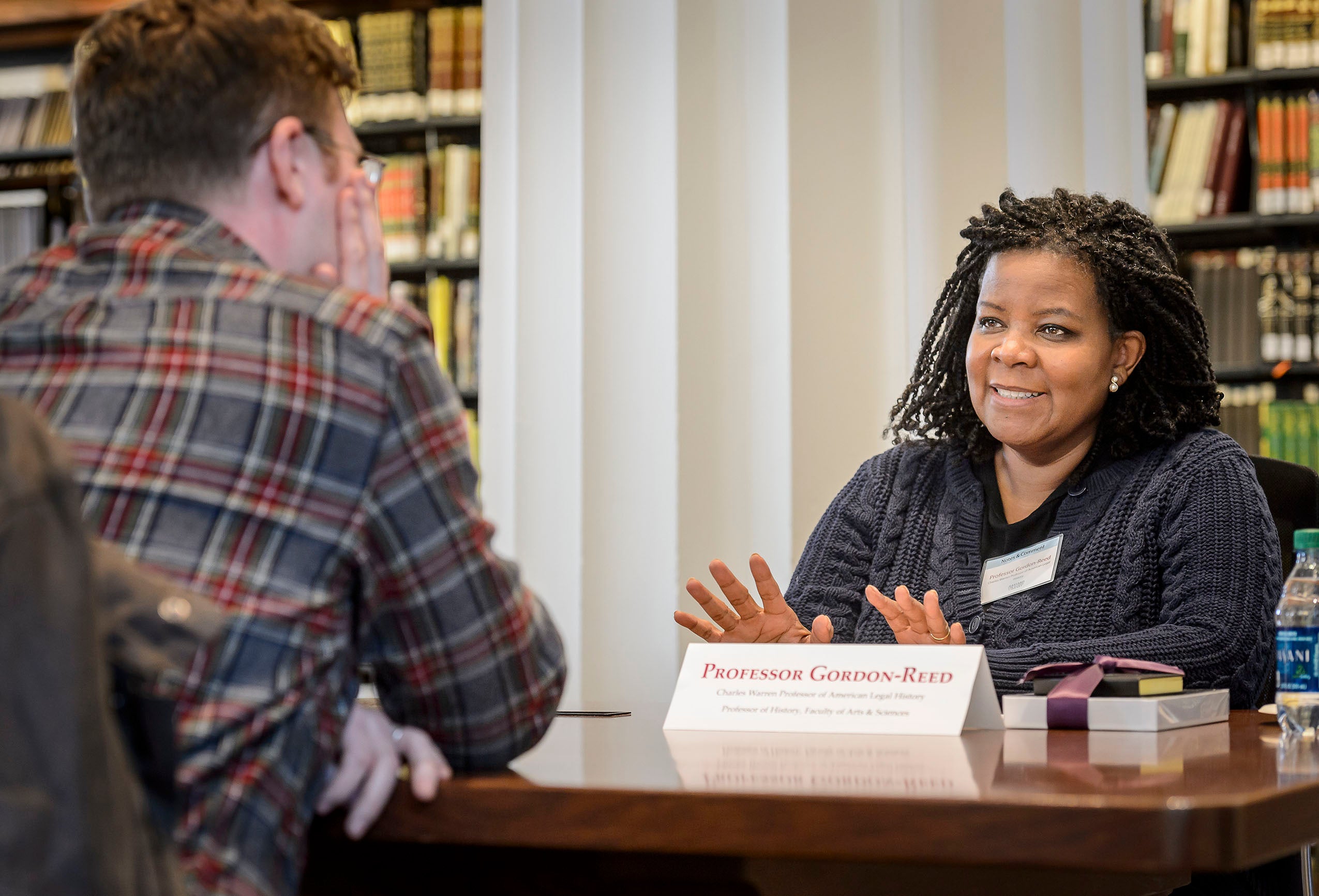People
Daphna Renan
-
Law over politics or politics over law? Scholars debate court’s direction.
September 23, 2022
Roe ruling fresh in their minds, panelists including New York Times journalist and Michigan, Harvard professors discussed whether SCOTUS resists or reflects partisan fights.
-
In the first of a Harvard Law School series on the Supreme Court and its role in American democracy, panelists debated the impact of politics on the Roberts Court.
-
Harvard Law School experts weigh in on the Supreme Court’s final decisions.
-
The U.S. Presidency: Looking Forward
January 15, 2021
The latest episode of Reasonably Speaking brings together a panel of top scholars in U.S. presidency and political science to discuss the future of the U.S. presidency Post–Trump. In “The U.S. Presidency: Looking Forward,” ALI President David F. Leviis joined by David M. Kennedy and Terry M. Moe of Stanford University, and Jack Landman Goldsmith and Daphna Renan of Harvard Law School for a timely conversation on the most important office in our government.
-
Trump’s firing of Krebs denounced by Boston-area scholars, Dems
November 18, 2020
President Trump’s abrupt firing Tuesday of the country’s top election security official who publicly said Trump lost to president-elect Joe Biden in an election drew outrage from Massachusetts political science scholars and officials. Christopher Krebs, director of the Cybersecurity and Infrastructure Security Agency, had also said the Nov. 3 election was reliable and free of interference. Trump announced his firing on Twitter Tuesday night...Though other presidents have fired those they considered disloyal, and previous election results have been disputed, there are few parallels to Trump’s firing of Krebs simply for telling the truth, academics said...Daphna Renan, a professor at Harvard Law School, said the firing was “appalling — but, unfortunately, no longer surprising.” “Constitutional democracy depends on the integrity and leadership of officials like Christopher Krebs,” Renan said in an e-mail. “Regretfully, at the moment, it depends on their heroism as well in response to a reckless president intent on undermining our democracy.”
-
Harvard Law School honors Ginsburg
September 28, 2020
During her first year as the sole woman on the US Supreme Court in 2006, Justice Ruth Bader Ginsburg wrote a foreword for a biography of the 19th-century lawyer Belva Ann Lockwood and presented the book to a new law clerk in her chambers. On Thursday, the clerk, Daphna Renan, now a professor at Harvard Law School, highlighted the foreword as an example of how Ginsburg broke barriers for women while simultaneously honoring her predecessors in the fight for equality. “Justice Ginsburg was a giant in the law, a luminary, and a leader, as you’ve heard, but she was always ... keenly aware of those who paved the way for her even as she trained her sights on how she could better pave it for others,” Renan said. She delivered the remarks during a virtual Harvard Law School event honoring Ginsburg, who died last Friday...Harvard Law’s current dean, John F. Manning, said the institution regrets the discrimination Ginsburg endured on campus. “It is hard to imagine a more consequential life, a life of greater meaning, and more lasting impact. And Justice Ginsburg did all of this while carrying the heavy weight imposed by discrimination,” he said. “To our eternal regret, she encountered it here at Harvard Law School.” The virtual event included tributes from Tomiko Brown-Nagin, dean of the Radcliffe Institute for Advanced Study, and Harvard Law professors Vicki Jackson, Martha Minow, and Michael Klarman...Brown-Nagin’s remarks explored what Ginsburg’s death means to the civil rights movement and comparisons between Ginsburg and the late Justice Thurgood Marshall, the first Black man to serve on the Supreme Court. Beyond fighting for women’s rights, Brown-Nagin said, Ginsburg had a deep understanding of racial discrimination and poured that insight into cases dealing with race. She cited Ginsburg’s dissent in a 1995 school desegregation case in Missouri in which the justice wrote it was too soon to curtail efforts to combat racial segregation given the state’s history of racial inequality. “The Court stresses that the present remedial programs have been in place for seven years,” Ginsburg wrote. “But compared to more than two centuries of firmly entrenched official discrimination, the experience with the desegregation remedies ordered by the [lower court] has been evanescent.” Ginsburg was, Brown-Nagin said, a “tremendous intellect, a courageous human being, and a giant of the law.”
-
‘It’s hard to imagine a more consequential life’
September 25, 2020
Supreme Court Justice Ruth Bader Ginsburg’s influence on Harvard Law School runs deep. On Thursday, September 24, a star team of Harvard deans and HLS professors remembered Ginsburg as a teacher, boss, colleague, inspiration and friend.
-
‘We have lost a giant’: Ruth Bader Ginsburg (1933-2020)
September 19, 2020
U.S. Supreme Court Justice Ruth Bader Ginsburg ’56-58, whose lifelong fight for equal rights helped pave the way for women to take on high-profile roles in business, government, the military, and the Supreme Court, died on Sept. 18. She was 87. “Justice Ginsburg personified the best of what it meant to be a judge. She brought a deep intellectual and personal integrity to everything she did,” said John F. Manning ’85, Morgan and Helen Chu Dean and Professor of Law at Harvard Law School. “... We have lost a giant.” ... “Very few individuals in history come close to the extraordinary and significant role played by Justice Ginsburg in the pursuit of justice before she joined the bench,” said former Harvard Law School Dean Martha Minow, the 300th Anniversary University Professor at Harvard. ... “The Constitution’s heart aches at Ruth Bader Ginsburg’s passing,” Laurence Tribe ’66, the Carl M. Loeb University Professor, Emeritus, at Harvard Law School. ... Harvard Law School Professor Daphna Renan, who served as a law clerk for Justice Ginsburg during the 2006-2007 term, said: “RBG was tenacious, unflappable, and deeply wise.
-
‘We have lost a giant’: Ruth Bader Ginsburg (1933–2020)
September 18, 2020
U.S. Supreme Court Justice Ruth Bader Ginsburg ’56-58, whose lifelong fight for equal rights helped pave the way for women to take on high-profile roles in business, government, the military, and the Supreme Court, died on Sept. 18. She was 87.
-
Mazars, Vance and the President’s Two Bodies
July 22, 2020
An article by Daphna Renan: The Supreme Court ended this term with two blockbuster decisions on the presidency and the separation of powers. Trump v. Mazars and Trump v. Vance both concern similar subpoenas, issued by congressional committees and the New York district attorney’s office, respectively, for information about the finances of Donald J. Trump, the individual (as well as his children and affiliated businesses). Of course, although these subpoenas concern personal finances and private business dealings, they pertain to the person who today serves as the nation’s chief executive. The opinions reveal a Supreme Court grappling with the implications of the president’s “two bodies”—the inseparable duality of the individual president and the institutional presidency. The president is both a human being, with human failings, and an institution co-equal with Congress and the Supreme Court. In an article, published this week in the Columbia Law Review, I argue that this duality is the defining ambiguity of the constitutional office of the president. Seemingly disparate debates on topics ranging from presidential impeachment, to litigation settlements involving the executive branch, to the legal status of presidential tweets, to the remedies available for presidential misconduct reflect this long-standing, ongoing ambivalence about the nature of the presidential office. The two-bodies prism can elucidate the controversy at the crux of the subpoena cases: Mazars is rooted in the principle that the two bodies are inextricable, their boundaries difficult to define. Vance cautions, however, that public law must not entirely collapse them. In this sense, the duality provides a normative justification for both opinions.
-
Scholars bring wide-ranging expertise and experience
July 1, 2020
Effective July 1, two faculty members were promoted and a new scholar joined the Harvard Law School faculty.
-
Daphna Renan, a scholar of presidential power and administrative governance, has been promoted to professor of law at Harvard Law School, effective July 1.
-
Last Lecture: “Humility, humanity, integrity and imagination define truly great lawyers,” says Daphna Renan
May 20, 2020
In her Last Lecture on May 13, Harvard Law School Assistant Professor Daphna Renan emphasized her kinship with the Class of 2020. She had…
-
Harvard Law School Last Lecture Series 2020
May 20, 2020
The 2020 Last Lecture Series is an HLS tradition where selected faculty members impart insight, advice, and final words of wisdom to the graduating class. Speakers this year included Dehlia Umunna, Daphna Renan, Ruth Okediji, and Naz Modirzadeh.
-
Zooming in on faculty at home
April 29, 2020
With a little help from their at-home photographers, HLS professors share what teaching classes via Zoom looks like.
-
Presidential Power Surges
July 17, 2019
Particular moments in history and strategic breaks with unwritten rules have helped many U.S. presidents expand their powers incrementally, leading some to wonder how wide-ranging presidential powers can be.
-
Presidential Power Surges
July 9, 2019
Particular moments in history and strategic breaks with unwritten rules have helped many presidents expand their powers incrementally, leading some to wonder how wide-ranging presidential powers can be. [With comments from Noah Feldman, Mark Tushnet, Michael Klarman, Jack Goldsmith, Daphna Renan, and Neil Eggleston].
-
Collaboration zone
April 26, 2019
Library event provides unique opportunity for faculty-student interaction.
